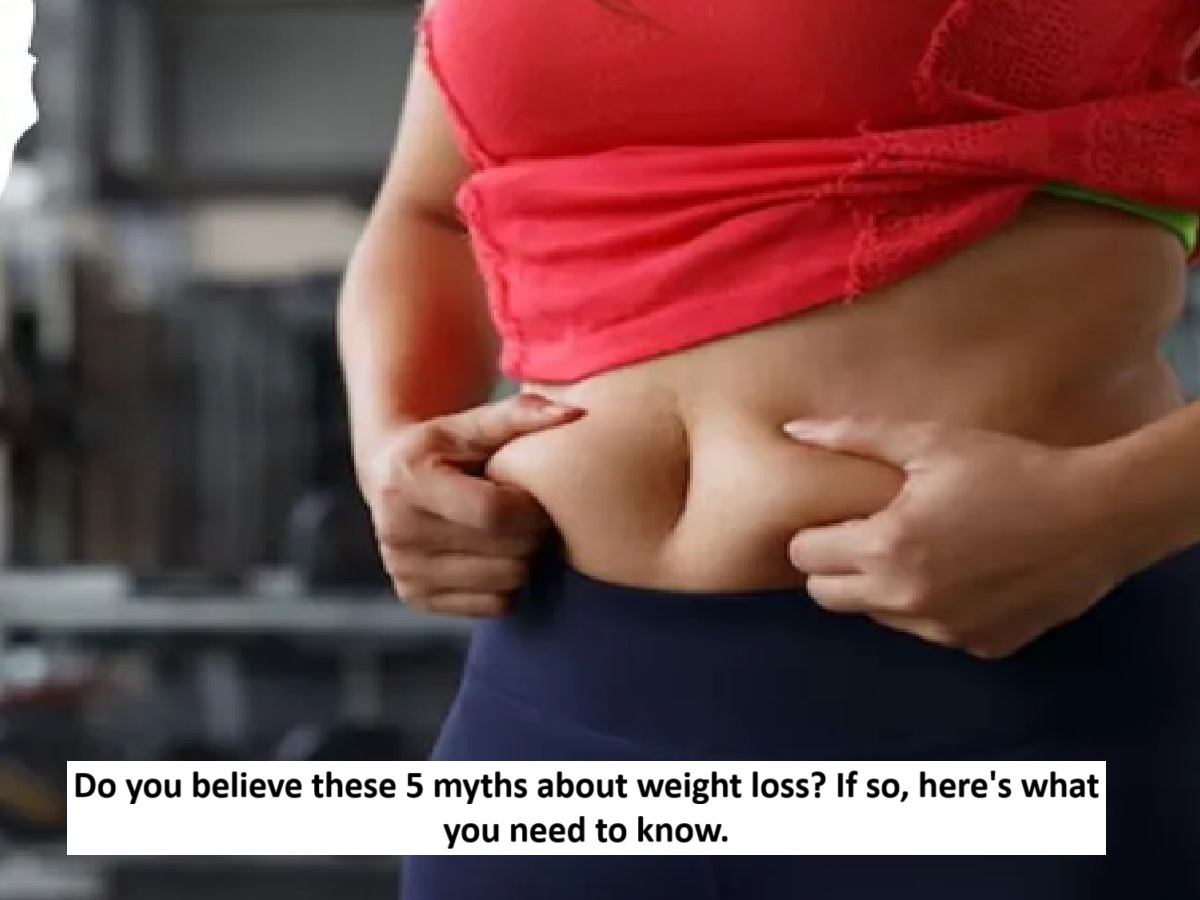
News Topical, Digital Desk : Weight loss has become a trending topic these days. Going to the gym, dieting, and discovering superfoods are part of almost everyone's daily routine. But in this hectic pace, we often fall prey to rumors and misconceptions about weight loss.
This misinformation about weight loss not only ruins our efforts but also compromises our health. Therefore, it's important to avoid these myths. Let's debunk five common myths about weight loss and discover the truth.
Myth 1: You should completely avoid carbs.
Truth: This is perhaps the most dangerous myth about weight loss. Carbs are our body's main source of energy. Giving them up completely can leave us feeling tired, weak, and irritable. The real issue isn't how many carbs we eat, but what kind of carbs we eat. Complex carbohydrates from whole-grain bread, brown rice, oats, pulses, and vegetables are rich in fiber and provide long-lasting energy. These aren't the ones we need to give up, but rather, we need to limit refined carbs like refined flour, sugar, and white bread.
Myth 2: Eating late at night increases obesity
Truth: Science agrees that weight gain or loss depends on total calorie intake and calorie expenditure throughout the day, not on the timing of meals. If you consume more calories than you need throughout the day, you will gain weight whether you eat during the day or at night. Yes, eating heavy, fried, or large meals late at night can cause digestive problems and sleep disturbances, which indirectly affect weight gain. However, if you feel hungry at night and your calorie intake is under control, you can have a light, protein-rich snack.
Myth 3- Weight loss is possible only through exercise
Truth: Exercise is just one aspect of a weight loss journey. It's a simple formula: if you're eating more calories than you burn, you won't lose weight. Even an hour of intense exercise can easily cancel out the calories in a burger and a cold drink. The formula of 80% diet and 20% exercise is often considered the best approach for weight loss. Exercise improves metabolism and builds muscle, but without dietary control, its full benefits can't be achieved.
Myth 4: 'Low-fat' or 'fat-free' products are perfect for weight loss
The truth: This is nothing more than a marketing ploy by companies. When fat is removed from a product, the amount of sugar, salt, and artificial flavors is increased to maintain its taste. This makes the product low-fat, but it can be high in sugar and calories, which contribute to weight gain. Consuming healthy fats, such as nuts, avocados, and ghee, in moderation, is essential for the body.
Myth 5: Extreme diets or starvation can help you lose weight quickly.
The truth: This approach can be detrimental to your health. Consuming too few calories for a long period of time puts the body into starvation mode. To conserve energy, the body slows down its metabolism and breaks down muscle to obtain energy. As a result, you'll lose weight, but with muscle loss. As soon as you return to a normal diet, your body will quickly gain weight back due to this slow metabolism, a phenomenon known as the "yo-yo effect."
--Advertisement--

 Share
Share



